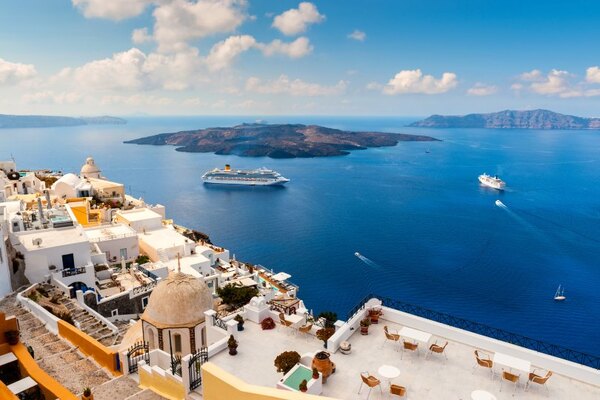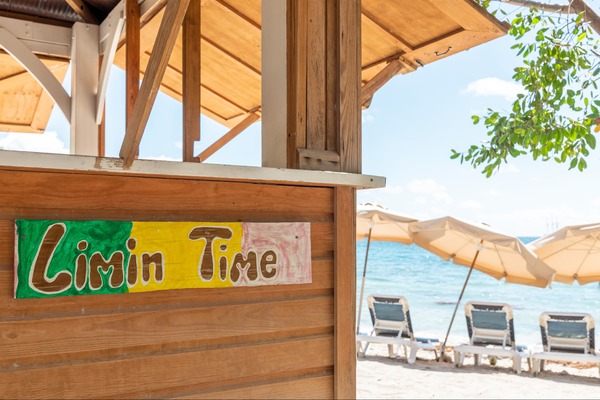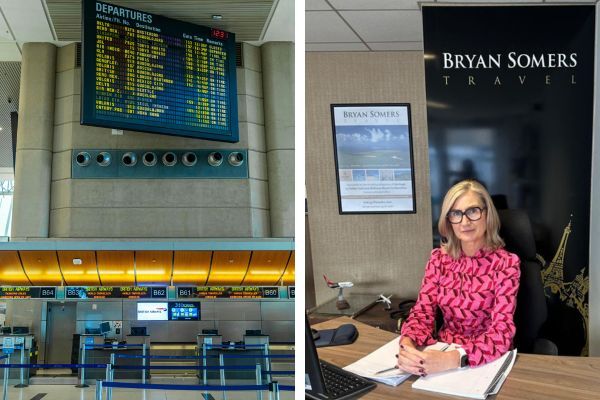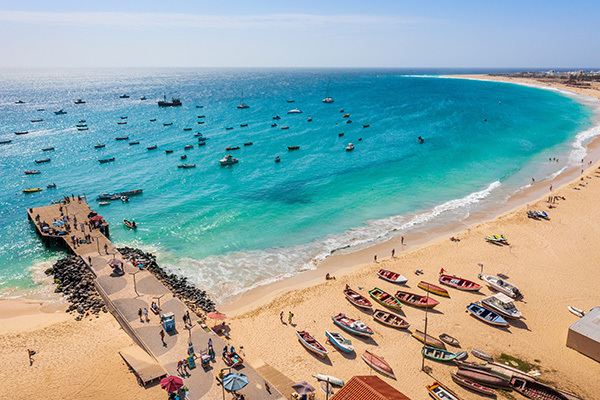The Big Question: Should the cruise sector shout about lower prices?
 Harry Kemble
Harry KembleA sure-fire way to attract cruisers is to market lower prices – but what impact does this have further down the line?
At TTG, we believe the frank exchange of ideas and views is key to progress. TTG’s Big Question series continues in February with a deeper dive into cruise pricing.
Sometimes, discounting is the only option if lines are looking to fill a ship quickly or meet specific sales targets – it’s inevitable.
And there’s no doubt low pricing sparks excitement in the market, particularly in an era when almost everyone is feeling the financial pinch.
But last-minute bargains can change a customer’s buying habits for years to come, which could ultimately affect both cruise lines and travel agents’ bottom lines.
So, at the midway point of this year’s wave season, five cruise experts tell TTG about the positives and negatives inherent in discounting – and if the sector has a problem with pricing.
What do you think? Join in the debate in the comments section below, or email feedback@ttgmedia.com. Alternatively, head to one of TTG’s social media channels to get involved.
'I’d much rather cruise lines shouted about greater value'
Lower pricing is always exciting for agents and guests – who doesn’t love a bargain holiday? However, low prices often come with challenges from an agent’s perspective.
That could be lower commissions, often due to non-commissionable cruise fares and port taxes, or more often than not – especially for agents like Paramount whose main business is repackaging – higher air fares and a lack of hotel availability. While lower pricing can be a great hook to drive enquiries, I’d much rather cruise lines shouted about greater value.
With more and more new-to-cruise guests choosing a holiday at sea, it’s important we find the right customer for the right brand.
Simply attracting customers based on price can be a very short-term solution; yes, it helps cruise lines fill their ships, but as an agency that strives to attract repeat customers, finding our customers a holiday they will truly enjoy is paramount.
There is also a risk discounting ends up devaluing the product offering. Cruises are still perceived as a fairly luxurious holiday choice; lower prices risk diluting the sector’s premium image. Regular cruisers in particular, who understand the value of a cruise holiday, could also associate lower prices with compromises in terms of the quality of onboard services, leading them to question whether the overall holiday experience will match that of their past trips.
Last-minute bargains can also be detrimental to a customer’s future buying habits. We don’t want guests to book a cruise, enjoy it, and then find the same holiday has doubled in price the next year. Having more consistent pricing, and spotting inventory needs much earlier, is key to enabling agents who sell tailor-made packages to support cruise lines and sell earlier at competitive prices while taking advantage of lower air fares and better-value hotel rates.
With cruise capacity increasing year-on-year, it’s crucial cruise companies don’t resort to last-minute price slashing to fill their ships, but pursue a more nuanced, long-term strategy which supports a larger number of agents – not just high-volume OTAs – while still offering consumers great value.
Marco Macchieraldo is senior product manager at Paramount Cruises.
'We focus heavily on our brand and how to sell our cruises'
At MSC Cruises, our communications and marketing efforts focus on the value we offer our customers as a whole rather than just price. While we do occasionally promote deals and booking incentives, our buoyant sales are largely a result of our exceptional onboard offering and strong brand reputation.
Of course, our trade partners will naturally lean towards marketing on price, but with the combination of the work we do to elevate our brand in the consumer arena and our trade partners showing the exceptional value we offer, we feel we get the balance right.
A great example of this is our latest TV campaign, which doesn’t mention price at all and focuses instead on the brand offering and our great-value proposition. We prefer to get people excited about choosing a holiday with us based on the experiences they will have onboard our ships rather than just getting a cheap deal.
In our training, we heavily focus on our brand and how to sell our cruises. We do this via our dedicated training and sales teams to ensure agents fully understand the USPs of selling an MSC cruise. For example, we communicate that our prices include gratuities, port taxes and charges, and that we offer some of the best drinks packages at sea plus the amazing amenities throughout our fleet of 22 ships around the world.
This way agents can sell our product based on what we believe is our unbeatable value proposition. We also work closely with our trade partners and supply them with regular focus sailings, group offers and pricing information.
Steve Williams is director of sales at MSC Cruises.
'It's never a good idea to sell on price alone'
Leading with low prices has become the norm within our industry. It’s a real challenge as many cruise lines feel the need to go out with lower pricing to get cut through with travel partners. However, these cheap lead in prices are usually related to inside cabins and are not reflective of what the majority of customers are buying. This ultimately can give a false impression of what people might pay.
Realistically, price is often reflective of the quality of a product, as consumers will generally get what they pay for when prices are consistently low. As any good agent knows, if you have the right guest on the right ship, you will have a customer for life, so it's never good to sell on price alone!
Rather than focusing on price, cruise lines, as well as agents, should do much more to shout about the remarkable value that comes within a cruise holiday, to help consumers understand the inclusions and comparisons to an equivalent land-based holiday. As well as continual investment in state-of-the-art ships, dining experiences and world class entertainment, there is also a lot of investment operationally, and this needs to be reflected in the price.
The breadth of cruise holidays available are extensive for guests to choose from. From mass-market ships with an incredible range of facilities to six-star ultra-luxury ships offering tailored experiences; whatever the guests’ budget, there will be a cruise for them, and this should be selected by guest preferences over price.
In summary, stupidly low prices harm the cruise industry more than they help. Celebrity’s focus continues to highlight the incredible value guests will experience through our premium offering, supported by strong consumer offers, affordable airfares and an ongoing partnership with our trade partners.
Our customers know they are getting a premium experience with Celebrity and are willing to pay the prices for that guaranteed experience.
Giles Hawke is vice-president and managing director EMEA of Celebrity Cruises.
'It's the emotional relationship that brings customers back'
Cruise lines running promotions and offering discounted packages could broaden the appeal of cruising to travellers who may previously have hesitated due to budget constraints. However, this strategy only works if lines are clear what the discounted package contains – dates of travel, type of cabin, inclusion of drinks packages, gratuities and excursions, and so on.
In my view, advertising lower prices simply as a promotional tactic to get customers’ attention must be approached with caution and foresight. We know our members’ customers come back to them time and time again because they trust them and value their expertise.
We therefore feel our members attract their customers by emphasising the value that is inherent in a cruise, by highlighting the various onboard activities and amenities, and by championing the destinations that make cruising an unparalleled experience – regardless of price.
At The Travel Network Group, our Cruise Club Concierge proposition – our in-house cruise tour operator available to all our members – gives us the opportunity to work closely with our members to establish their customers’ exact requirements and create bespoke ex-UK and fly-cruise packages for them.
Given our members’ fantastic relationships with their customers, in most cases, we see cabin upgrades, drinks packages added, plus additional pre- and post-stays and tours that may not have been advertised in the cruise lines’ original deals. This is all testament to the fact it’s that emotional relationship, that trust and our members’ knowledge, that bring customers back and build loyalty, not necessarily just the price.
Gary Lewis is chief executive of The Travel Network Group.
'Low prices can generate leads and increase bookings'
Cruise companies have long used attractive pricing strategies to sway customers to choose their ships. However, whether or not to shout about lower prices I feel is a decision that requires careful consideration.
On the one hand, advertising lower prices can attract price-sensitive customers who may not have otherwise considered a cruise. On the other, it can also devalue the brand and give the impression the cruise line is cheap and low-quality.
I think many cruise companies have struck a balance by advertising promotions and discounts tastefully and subtly, such as through targeted adverts or by offering discounts to loyal customers or early bookers. By focusing on the value of the experience rather than just the price, cruise companies can create a sense of exclusivity and luxury that attracts a higher-end clientele.
Low prices can be a valuable tool to generate leads, and they can also increase the total number of enquiries and bookings, which can ultimately lead to increased revenue. Let’s not forget that cruising is an exceptional and unforgettable way to explore the world, and it has become one of the most popular holiday options over the years. It must also remain affordable for everyone.
In short, I think cruise companies have been strategic in their pricing and advertising strategies to ensure they attract the right customers without compromising their brand reputation.
In addition, when it comes to planning a cruise, it’s essential to have knowledgeable and experienced travel advisors to assist customers. Whether they’re looking for a family-friendly cruise with lots of activities for the kids or a luxurious voyage with gourmet dining and spa services, travel advisors must have the insider knowledge and expertise to help them choose the right cruise for their customers.
Marie Leach is sales development manager at Althams Travel.
The Big Question by TTG
The Big Question is a monthly feature from TTG taking on some of the burning issues facing travel through expert commentary, insight and debate. While it's not designed to be adversarial, it won't flinch from placing a spotlight on some often uncomfortable topics travel – like it or not – will one day have to reckon with.
- Is the 'S' word starting to put customers off?
- Is direct action targeting commercial travel ever justifiable?
- Is it time to rebrand the travel agent?
- Does travel have an ageism problem?
- Has travel added too much capacity for summer 2024?
- Can celebrity endorsements ever be truly responsible?
- Do women have equal opportunity to progress in travel?
- Should the cruise sector shout about lower prices?
- Is it time for a change of government?
- Has the pandemic changed peaks for ever?
- Is it finally time to turn APD into an environmental tax?
- Does all-inclusive value come at too high a price for the planet?
- Can cruise sail ahead of land-based breaks?
- Should travel companies still be selling captive animal attractions?
- Can aviation do more to help disabled travellers?
- Is there a future for private jets in travel?
- Should agents start charging for their time?
- Is it finally time to reform the Atol scheme?
- Should we be flying during a climate crisis?
Sign up for weekday travel news and analysis straight to your inbox

Harry Kemble
Supplier Directory
Find contacts for 260+ travel suppliers. Type name, company or destination.






















